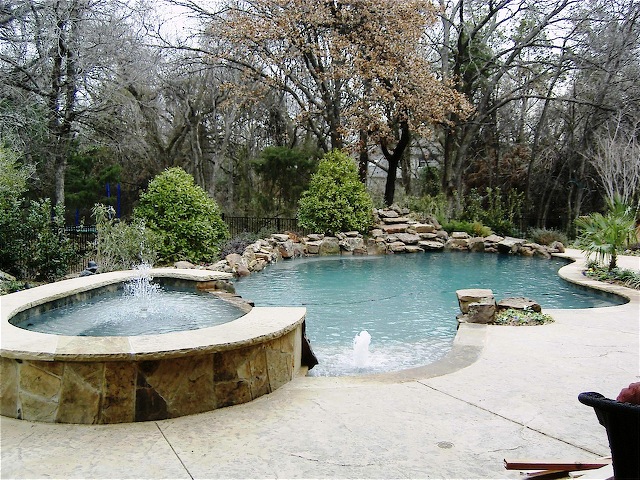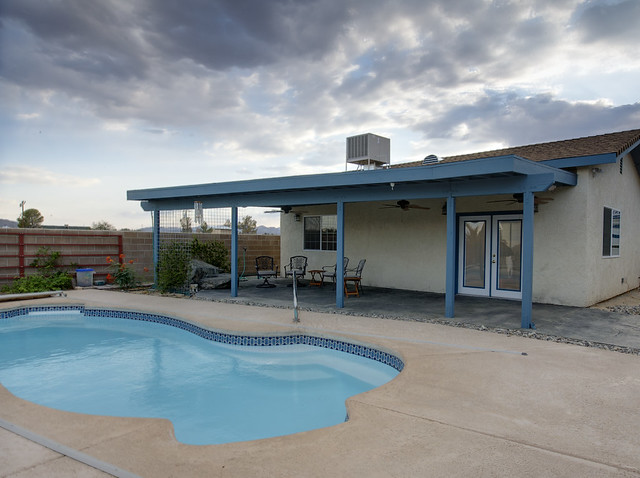Pool Design: Distinguishing Pool Types

If you love swimming and enjoy relaxing around the pool with friends and family, you may be wondering which type of pool is right for you. Concrete, fiberglass, and vinyl swimming pools are all great options. Vinyl swimming pools feature an inner liner that is set against a steel, cinder block, polymer, or ICF wall frame. In concrete swimming pools, the inner and outer surface are finished with cement. Fiberglass swimming pools feature a surface that is made from a fiberglass gel, much like a bathtub or shower. When choosing the best option for your home, here's a few things to keep in mind.
Vinyl Swimming Pools
Vinyl swimming pools are designed with a metal frame and a vinyl liner that seals in the water. The pools have the lowest initial price, but you'll need to replace the vinyl liner every 7 to 15 years, which adds to the maintenance expenses. Vinyl liners are soft to the touch, so they feel great against your skin. If you opt for a vinyl swimming pool, you'll need to be careful when pets or children are playing in the pool so that the liner doesn't rip. You should keep in mind that a vinyl swimming pool may affect your home's resale value. Some buyers may want you to replace the liner as part of the deal, an expense that can run several thousand dollars.

Cement Swimming Pools
Cement swimming pools can be customized in terms of the depth, size, and style to suit your individual needs. The pool can be tailored to your landscape, and it's easy to make a cement swimming pool with rounded edges. With a concrete swimming pool, you'll have the chance to add ledges, benches, and tiers to the inner area. The downside to a concrete swimming pool is the high initial price. In addition, you can expect to resurface your pool every 10 to 20 years. Because concrete has a porous surface, it has higher maintenance expenses. The concrete fosters the growth of algae and can increase your water's pH, leading to more chemical costs.

Fiberglass Swimming Pools
Fiberglass pools are designed with a non-porous coating, so the surface requires minimal maintenance. While the upfront costs may be slightly higher when compared with a vinyl swimming pool, you'll have a pool that you'll never need to replace. After your initial investment is made, you'll only need to provide routine maintenance. In addition, the fiberglass shell helps to reduce algae growth and lowers the amount of chemicals that you'll need to maintain clean and sparkling water. This will save you money and reduce the stress that you may experience when you see that your swimming pool's water is slightly green. As with other types of pools, you can include built-in seats and steps to the inner area.

Adding a swimming pool to your landscape is a great way to create a usable outdoor living space. You can easily add water features and a full kitchen or grill so that you can prepare meals for your family and friends. When you're shopping around for the best model, you may want to consider your aesthetic goals and your price range. While vinyl swimming pools are the most affordable option, the design ideas that a cement swimming pool offers are virtually endless, making them a great pick too.
photo credit: flickr, plastimayd

Leave a Comment